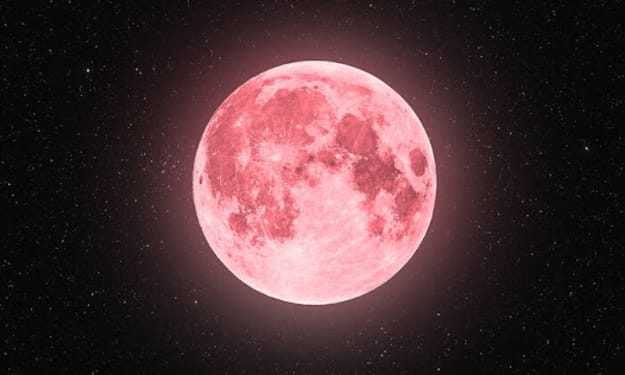What makes a Joke funny?
What makes a joke funny? This question has puzzled the world since the introduction of comedy, both as a profession and a genre. In this article, we will explore this question while providing the basis of what the field of comedy, comedians and jokes are.

What makes a joke funny? This is a question that has been puzzling people for centuries. Some say it's all about the timing, while others claim that it's the context that matters. But what if there is no one answer to this question? What if different jokes are funny to different people? And what if sometimes we find a joke funny but later realise it was pretty offensive? In this blog post, we will explore the concept of humour and try to answer this age-old question.
Comedy and Jokes
Comedy is a genre of entertainment that typically involves joking and satire. It is often used to make light of difficult or stressful situations, to relieve tension, or simply to make people laugh. Jokes are one of the most common forms of comedy and can be found in nearly every culture worldwide.
There are many different types of jokes, and what makes one person laugh might not be so funny to another. For example, some people find puns hilarious, while others might think they are cheesy or just not funny. But some general principles seem to apply to a lot of jokes:
Surprise: A good joke usually contains some element of surprise. This could be a play on words, an unexpected twist, or even just a non-sequitur.
Incongruity: Many jokes rely on contrasting two things that don't usually go together. This could be two people from different walks of life, two conflicting ideas, or even just two random objects.
Ambiguity: Many jokes are based on double meanings or wordplay. This can be done with puns, homonyms, or even just by using different words with similar meanings.
Why do we joke?
Humour is a complex and often puzzling phenomenon. It has been the subject of philosophical speculation for centuries, and there is still no consensus on what it is or why we find things funny. Some believe that humour is an innate quality, while others think that it is learned through experience.
One theory of humour posits that we laugh in order to release tension or relieve stress. This is known as the "relief theory" of humour, suggesting that humour serves an important psychological function. According to this theory, when we find something funny, it is because we are experiencing a release of tension or stress.
Another popular theory is the "superiority theory" of humour, which claims that we laugh at things that make us feel superior to others. This could be due to envy, schadenfreude, or a general sense of superiority. This theory has been criticised for lacking scientific evidence, but it remains a popular explanation for why we find certain things funny.
What is a comedian?
A comedian is a person who tells jokes or performs comedy. Comedians typically work in clubs, theatres, or on television. They often use humour to make light of difficult or stressful situations, to relieve tension, or simply to make people laugh.
Comedians usually write their own material, which they then perform for an audience. However, some comedians also use pre-written material, usually in the form of jokes or comedy sketches.
The earliest known comedians date back to Ancient Greece, where they were known as komos (κῶμος) or komoidiai (κωμῳδίαι). These performers would sing and dance in the streets, often while wearing masks or costumes. They typically performed for religious festivals or other public celebrations.
The term "comedy" is derived from the Ancient Greek word κωμῳδία (kōmōidía), which means "revel" or "song". The first known use of the word "comedy" in English was in the 14th century when it was used to describe a type of medieval drama.
Today, comedians come in all shapes and sizes, and they perform in a wide variety of venues. Some comedians tell jokes, while others use satire or observational humour. There are also many different types of comedy, such as situational comedy, dark comedy, and surreal humour, to name a few.
What makes a joke not funny?
Of course, not every joke is funny to everyone. In fact, some jokes can be pretty offensive or hurtful. This is because humour is often based on stereotypes, prejudice, or ignorance. When a joke relies on these things, fails to land with respect, and instead attacks or hurts a person or community, it is not funny; it is simply offensive.
If you want to make sure that your jokes are funny, it is important to be aware of the potential for offence. This means avoiding jokes that rely on racism, sexism, homophobia, or any other form of bigotry. It also means being careful with jokes about sensitive topics like death, illness, or trauma. And finally, it means being mindful of the different types of humour that people find funny. What might be hilarious to you could be entirely unfunny for someone else.
So, the next time you want to make someone laugh, keep these things in mind. A little sensitivity and awareness can go a long way in ensuring that your jokes are funny. However, if done correctly and with respect to both your audience and the person or community at hand, alongside proper timing and various personal criteria (for example, if the joke is aimed at someone else or yourself) then the shock factor can make your joke land well and, quite ironically, relax the audience by removing tension in the room through your risky joke. This is a very complex comedy area; very few can master the art of risky jokes.
What happens when a joke offends someone?
There are a few possible outcomes when a joke offends someone. The first is that the offended person doesn't find the joke funny. In this case, there's not much you can do except apologise and move on.
The second outcome is that the offended person finds the joke funny but is still upset by it. This is a bit more complicated, as the person may laugh despite feeling offended. In this case, it's important to apologise and try to explain why the joke wasn't meant to be offensive.
The third outcome is that the offended person doesn't find the joke funny and feels it was deliberately intended to offend them. This is the most severe outcome, suggesting that the joke was made in bad faith. In this case, it's important to apologise and try to explain why the joke wasn't meant to be offensive.
Humour is a powerful tool that can be used to make people laugh, but it's important to remember that not every joke is funny to everyone. When telling jokes, it's important to be aware of the potential for offence and avoid jokes that rely on racism, sexism, homophobia, or any other form of bigotry. It's also important to be mindful of the different types of humour that people find funny. What might be hilarious to you could be completely unfunny to someone else. So, the next time you want to make someone laugh, keep these things in mind. A little sensitivity and awareness can go a long way in ensuring that your jokes are funny.
Thank you for taking the time to read our article!
If you enjoyed the content, please consider leaving a '<3' and Subscribe so that you don't miss future releases!
If you wish to support us on our mission to provide free, weekly infotainment for you to enjoy, please consider pledging a small donation or leaving a tip - all donations help us to create our work and support us as creators.
If you wish to begin your Vocal journey, join the Vocal+ programme to get more for your work! Earn more per view, withdraw your profits quicker, access Vocal+ Challenges with prizes to be won weekly, and so much more by clicking here!
Let's start a conversation! Leave a comment on what you'd like us to discuss in future articles, or reach out on our Social Media Channels!
You're the reason we can continue doing what we love. We are forever grateful for your support!
About the Creator
People! Just say Something!
Quirky Writing created by Artistic Creativity and the power of AI with the goal of learning something new every day!
Facebook: https://www.facebook.com/PeopleJSS
Twitter: https://twitter.com/PeopleJSS






Comments
There are no comments for this story
Be the first to respond and start the conversation.